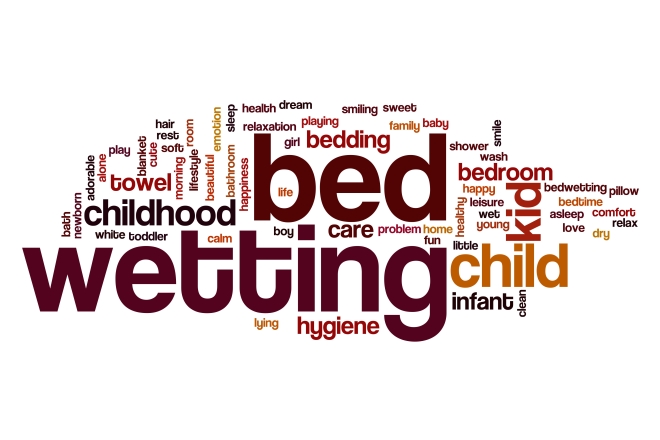According to the National Sleep Foundation, five to seven million children in the United States experience bedwetting. In most of the cases, bedwetting doesn’t need to be treated and it’s considered part of growing up.
This may take longer in some children, especially boys.
Why Kids Wet The Bed
Some of the reasons kids wet the bed include:
- small bladder capacity,
- too much urine production during the night,
- unusual potty habits during the day and
- deep sleeping patterns.
As kids grow and mature, these causes will eventually disappear and bedwetting will go away in most of cases without any treatment.
According to Dr. Preston Smith`s findings, 70% of children will stop wetting the bed by the age of 11 and 99% will no longer experience bedwetting by the time they turn 15.
Treat bedwetting only if it becomes a problem (for example, frustrated parents, embarrassed children, etc…) or if an underlying medical condition such as urinary tract infection, chronic constipation or birth defects is causing it.
Can Stress and Anxiety Cause Bedwetting?
There are no studies showing stress and anxiety can directly cause bedwetting. This is mainly because it’s difficult to identify emotional issues in kids in general and it’s even harder to figure out exactly how emotional stressors can cause bedwetting.
Studies show that starting school, a new sibling or a childhood trauma (for example, sexual abuse) doesn’t directly cause bedwetting, even though the number of nighttime accidents increases. This is attributable to stress and anxiety causing secondary issues that may lead to bedwetting.
For example, most children with emotional problems have bad daytime potty habits. These kids are more likely to withhold going to the bathroom during the day (for whatever reason) and this can cause problems during the night, since they cannot “hold it in” while they sleep.
Much like adults, children also look for ways to relief stress, and this includes indulging on comfort and junk food. Foods high in salt cause water retention. Foods high in sugar will irritate the bladder. So both types of food can increase the chance of having an accident at night.
Steve J. Hodges, MD also found 30 consecutive children who asked to be treated for bedwetting were also constipated.
Also, stress and anxiety will drain the child’s energy throughout the day, and this will cause deep sleeping patterns.
How To Treat Bedwetting In Stressed Children
- Even though stress and anxiety don’t directly lead to bedwetting. You should address these first, since emotional stressors can cause secondary issues that may lead to bedwetting.
- Second, consider using a bedwetting alarm. These will not only prevent the sheets from getting wet at night but it will also help in conditioning the children to wake up before actually urinating. Even though bedwetting alarms have a high success rate, it will take a long time to see results, sometimes as long as a couple of months. However, if you believe this is the right treatment for your child, click here for a list of popular bedwetting alarms.
- Medication should only be used temporarily, since drugs do not cure bedwetting, but only mask the symptoms. Desmopressin Acetate (DDAVP), Imipramine and Oxybutynin (Ditropan XL) are the most popular drugs used for temporarily relief. Use these drugs (with your doctor’s approval) in certain social situations (eg: camping, sleepover, etc…) to avoid embarrassing situations.
Change can be difficult for everyone in the family and is especially tough on children. Divorce, relocating, or changing schools can be extremely tough for them to deal with. Get three tips for helping your child adjust to difficult change.







Get awesome bedwetting alarms at http://onestopbedwetting.com/. They carry a large variety of safe, effective and popular alarms.